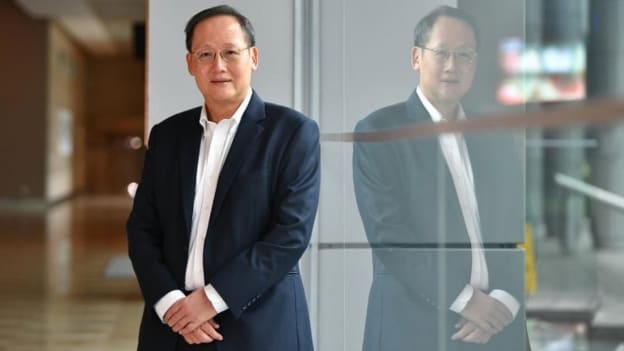Dr Tan See Leng: The ABCs of workplace safety

Singapore is considered one of the world’s leading advocates of workplace safety and health.
SINGAPORE – The Workplace Safety and Health Council has launched a new advocacy programme for business leaders championing the ABCs of workplace safety and health – an initiative lauded by Manpower Minister Dr Tan See Leng.
Speaking to delegates at the WSH Conference, Dr Tan unveiled the advocates’ programme, where private-sector companies are encouraged to spread the word and promote good workplace safety and health practices.
A total of 18 companies from manufacturing, construction and transport have been selected as part of the pioneering group of WSH Advocates.
These ambassadors will be “the catalysts for progressive WSH practices in the private sector,” Dr Tan said.
Overall, WSH Advocates will be responsible for cultivating a culture of accountability among their contractors and subcontractors by requiring them to have WSH accreditation if they perform manual labour.
They will also be tasked to strengthen contractors and subcontractors’ WSH capability by sharing best practices and training or engagement opportunities with them.
Read More: Singapore revises safety measures for workers in extreme heat
The ABCs of workplace safety and health
Dr Tan also shed light on the impact and necessity of collaboration between and among businesses, employees and the government in bolstering health and safety measures at work.
“Three things are essential. They are alignment, boldness [and] collaboration. In short, the ABC for good WSH,” Dr Tan said.
As regards alignment, good WSH must yield better business opportunities. “The public sector has taken the lead on this,” the minister said.
For example, new WSH requirements for public sector projects enable tenderers that place greater emphasis on safety to have a “better chance of clinching government contracts,” he said.
Read More: Singapore tightens workplace safety rules with video surveillance
Meanwhile, for large projects, the government offers the WSH bonus scheme to contractors who demonstrate good WSH.
“This cash payout should then be shared with workers to create a virtuous cycle that encourages everyone in the worksite to prioritse their own safety and advocate WSH for others,” Dr Tan said.
The element of boldness, meanwhile, is about “seeking out better practices and adopting new solutions” for ensuring WSH, he said, pointing out advancements such as AI-powered video surveillance and analytics.
“Technology is a game changer,” Dr Tan said. “On the government’s part, we are boldly spurring companies to adopt technology.”
Lastly, the minister emphasised collaboration: “A collaborative mindset drives collective ownership of WSH outcomes across all stakeholders in Singapore and across international boundaries.”
‘We must do even better’
Singapore is considered one of the world’s leading advocates of workplace safety and health.
“In 2023, Singapore achieved a record low fatal injury rate of below 1 per 100,000 workers. It is a commendable achievement, putting us among the best in the world,” Dr Tan said. “But this does not mean, we have ‘arrived’. Sustaining this level of WSH performance will require our continued commitment and focus.”
For his part, WSH Council Chairman Abu Bakar Mohd Nor cast light on the path forward: “It is heartening that Singapore achieved such a milestone in WSH performance last year … We want and must do even better.”
The chairman is hopeful more SMEs would see the business advantage of investing in WSH. “It would enhance their working processes [and] productivity and help them foster stronger relationships with their respective WSH Advocates,” he said.
“We want to have more WSH Advocates in more industries. We can then have a more pervasive culture of WSH excellence, thereby promoting a safer and healthier working environment for all.”















